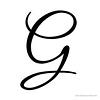Take a photo of a barcode or cover
Again one of the countless books that wants to spread the propagandistic and racist idea that everything about the United States is the best possible and everything related to China is shit and inferior. And it is really a pity because it makes almost unreadable a novel which, at least in the first part, is quite intriguing (in spite of beein unrealistic).
In the bookshop, the pretty blue cover and strong title spoke to me first. Next was the blurb which is intriguing, but doesn't do the book justice, as I've learned later.
The writing style is simple and sober which matches the protagonist's voice very well. Iona seems to be a disillusioned woman who loses herself in translation work by day and has sex with strangers by night. Some sentences or paragraphs sounded a little artificial because they violated the 'show don't tell' rule. In some cases they were necessary to move the story along, in some cases not. Iona seems detached from the world and estranged, she looks at everyday matters with confusion. That state of mind is familiar to me, so I saw the loneliness behind her facade and was intrigued immediately.
The story focuses the Chinese lovers Mu and Jian, united in their love for art and poetry in a rigidly political and conformist society, as told through their letters and journals. Both of them have their distinct voice and handwriting (as seen through occasional photos in the book - I love the idea!), Jian confident and determined, Mu more thoughtful and sensitive. The way their story is linked with Chinese politics, the educated yet hopeless youth and struggle of the arts in China fascinated me throughout the entire book. In the end their conflicts become a matter of national (even international) importance. I'm not sure if the scale isn't too big for a love story so deep and personal, but it certainly upped the stakes and added suspense towards the end of the book.
Iona's story is hidden between their words and harder to interpret. I'm still not sure how to read the last scene despite having a few ideas. Still, her mental evolution compliments Jian and Mu's physical journey nicely. The book wouldn't be complete without Iona's conflict and I loved how it highlighted the power of stories, communication and intercultural exchange. Everything we read influences what we think and, eventually, how we act. That is precisely why translation is such important work.
Like I already mentioned, the characters spoke to me personally (because I'm interested in language, translation and China myself), but their love, their desire to be heard and understood and their loneliness touched me on a more universal level. I think this book carries an important message - that as well as the emotional stories wrapped into a small neat package is what makes it worth reading. And reading again (I know I will).
The writing style is simple and sober which matches the protagonist's voice very well. Iona seems to be a disillusioned woman who loses herself in translation work by day and has sex with strangers by night. Some sentences or paragraphs sounded a little artificial because they violated the 'show don't tell' rule. In some cases they were necessary to move the story along, in some cases not. Iona seems detached from the world and estranged, she looks at everyday matters with confusion. That state of mind is familiar to me, so I saw the loneliness behind her facade and was intrigued immediately.
The story focuses the Chinese lovers Mu and Jian, united in their love for art and poetry in a rigidly political and conformist society, as told through their letters and journals. Both of them have their distinct voice and handwriting (as seen through occasional photos in the book - I love the idea!), Jian confident and determined, Mu more thoughtful and sensitive. The way their story is linked with Chinese politics, the educated yet hopeless youth and struggle of the arts in China fascinated me throughout the entire book. In the end their conflicts become a matter of national (even international) importance. I'm not sure if the scale isn't too big for a love story so deep and personal, but it certainly upped the stakes and added suspense towards the end of the book.
Iona's story is hidden between their words and harder to interpret. I'm still not sure how to read the last scene despite having a few ideas. Still, her mental evolution compliments Jian and Mu's physical journey nicely. The book wouldn't be complete without Iona's conflict and I loved how it highlighted the power of stories, communication and intercultural exchange. Everything we read influences what we think and, eventually, how we act. That is precisely why translation is such important work.
Like I already mentioned, the characters spoke to me personally (because I'm interested in language, translation and China myself), but their love, their desire to be heard and understood and their loneliness touched me on a more universal level. I think this book carries an important message - that as well as the emotional stories wrapped into a small neat package is what makes it worth reading. And reading again (I know I will).
I just couldn't love this book, no matter how hard I tried. I warmed to Iona the most and liked hearing about her life in Scotland. However, I never felt that we got to know Mu or Jian as deeply as I would have liked. I think part of the reason I didn't enjoy hearing about them as much was because their parts were in diary or letter format and I don't I like this as much as third person narrative. There was nothing happy about this story. I found it quite depressing. It did, however, give me an insight into how lonely one could feel as an immigrant. I felt deeply sorry for Jian when he was outside of China.
Because of the way I didn't really get to knows Jian & Mu, and because of the sorrow of the story, 2.5 stars.
Because of the way I didn't really get to knows Jian & Mu, and because of the sorrow of the story, 2.5 stars.
First of all, I'm hooked by the cover. Even though it doesn't resemble the story at all, but who cares. I gotta hand it that the cover is lit.
The novel is written quite well. I admit Xiaolu is very poetic. The novel is written in multiple plot schemes and back-and-forth timeline which somehow I knew they're eventually connected to the novel's present day. China is very enigmatic as the whole entity. Its people, its culture, its language, and especially its politics. It will always be intriguing for China to be a background story.
Long story short, this is a love story. A love story of two star-crossed lovers, who fought for freedom, who looked for sense of purpose... across borders, across the oceans, across time.
The novel is written quite well. I admit Xiaolu is very poetic. The novel is written in multiple plot schemes and back-and-forth timeline which somehow I knew they're eventually connected to the novel's present day. China is very enigmatic as the whole entity. Its people, its culture, its language, and especially its politics. It will always be intriguing for China to be a background story.
Long story short, this is a love story. A love story of two star-crossed lovers, who fought for freedom, who looked for sense of purpose... across borders, across the oceans, across time.
emotional
reflective
sad
medium-paced
Plot or Character Driven:
Character
Strong character development:
Yes
Loveable characters:
Yes
Diverse cast of characters:
Yes
Flaws of characters a main focus:
Yes
I will say straight away that I loved this book! I have read one book by this author before but didn't really know what to expect going into this one.
The writing style had me intrigued from the beginning and although it took me a long time to connect to Iona's parts of the story, I really enjoyed discovering more about all of these characters' lives. The inclusion of Chinese history and politics was fascinating and not something I've read about before.
I really believe that Xiaolu Guo did her research well and fleshed out these characters in such a way that made them feel completely realistic. Everything that happens could have taken place in real life and that added to the drama and concern that I had for the characters throughout.
I would highly recommend this book to anyone, especially if you are trying to read from diverse protagonists as this is a perspective that you don't get very often in English literature.
The writing style had me intrigued from the beginning and although it took me a long time to connect to Iona's parts of the story, I really enjoyed discovering more about all of these characters' lives. The inclusion of Chinese history and politics was fascinating and not something I've read about before.
I really believe that Xiaolu Guo did her research well and fleshed out these characters in such a way that made them feel completely realistic. Everything that happens could have taken place in real life and that added to the drama and concern that I had for the characters throughout.
I would highly recommend this book to anyone, especially if you are trying to read from diverse protagonists as this is a perspective that you don't get very often in English literature.
Don’t judge a book by its cover because I admit that I only picked up this book due to the catchy cover art. The story follows a young British translator as she translates letters between a Chinese man in political exile writing to his lover in China, who’s desperate to find him. The book was supposed to relate the political and cultural angst of mainland China. A noble cause to be sure. But completely ineffective because the writing and pace of this book were so blah. That’s all I can really say. I was basically bored out of my mind.
I Am China is an ambitious book about an important topic. But it never really came together for me. Xiaolu Guo has so many ideas that they never really coalesce. She wants to talk about identity, and politics, and revolution, and language, and isolation, and love, and sex, and human connection. In the end, I felt she was only partly successful. I would rather read a novel that successfully tackles one or two of these ideas than one at which the author seems to have thrown every thought she’s ever had in hopes something will stick. That’s maybe a bit harsher than it should be; I do think that Guo says some interesting things about the human cost of political resistance. (And I found it particularly interesting since I’d just finished Age of Ambition: Chasing Fortune, Truth, and Faith in the New China, which gave me a different perspective on life in post-Tiananmen China.) I just felt that the novel could have been more powerful if Guo had brought more focus to it.
Fascinating look at China's recent history as the protagonist, a translator, unravels love letters and diaries. It opens up China to the translator and, through her, the reader. And piecing together the story of the lovers also forces the translator to look at love and open herself up to it. I Am China gives insight into the work of a translator and how they inhabit the stories they are entrusted to translate.






